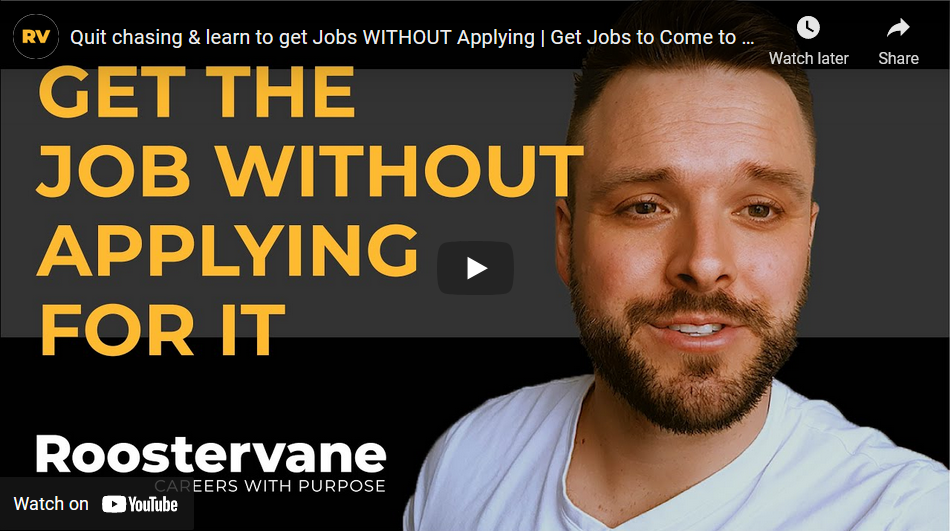Updated May 28, 2021
So many people have no idea where to start looking for non-academic jobs for advanced degrees. But there are so many fantastic alternative Master’s and PhD careers!
I meet a lot of people with advanced degrees on my travels outside of academia. They’re often creative, well-spoken, empathetic, free-thinking people whose ideas are changing the world. I meet them in all walks of life, but currently I’m mostly meeting them in government, politics, and think tanks in Ottawa, Canada’s capital.
One of my pet peeves is when people think that a non-academic career means working for a university administration. Don’t get me wrong, if you want to stay in the university and you see administration as a viable career for you, go for it. There are lots of amazing roles in admin too.
But if you are only jumping into this because you can’t think of anything else and want to be remotely connected to academia, let me help.
Let’s think a little bigger. These three alternative PhD careers are great for almost any discipline. Each of them takes brains, and your advanced degree will be an advantage (if not a prerequisite).
This post may contain links to affiliate products, which–if you choose to purchase–pay us a commission at no extra cost to you. This helps to support our work. We only promote products we’ve used and love.
1. Public Policy
What is Public Policy
Public policy is the framework that guides all of our lives whether we know about it or not. It’s the decisions government makes about the structure of public life, and we live out the ramifications every day. Whether it’s the regulations around food, the education policy that guided your degree and its funding, or the tax policy that affects your take-home pay, public policy is everywhere.
Getting into policy work often takes advanced reading, writing, critical thinking, and communication skills, which is why and a lot of PhDs and master’s grads are involved in shaping it. The transition to public policy jobs for PhDs or Master’s grads can be relatively easy, whether your degree is in biology or English literature.
“Policy”–as it’s known– is a world that craves ideas and intelligence, often combining qualitative and quantitative research to make life better for people.
What does a Policy Analyst do?
You can find policy roles in a lot of places, but they’re especially common in government and think tanks. Policy makers in government usually design the society of the future and do research that has real-time impact on people’s lives.
You can find policy roles in a lot of places, but they’re especially common in government and think tanks. Policy makers in government usually design the society of the future and do research that has real-time impact on people’s lives.
For example, when I worked in immigration policy, I got to be a part of shaping how refugees come to Canada, what’s required of them, and how we as a society take care of them. If you go into government policy you probably won’t be in the spotlight–but you’ll be hard-pressed to come up with an environment in which research has a more direct impact on people’s lives.
Think tanks usually work a bit differently. In some ways, they are more similar to academia, where you will often be known for a specialty in a certain area and research and speak on behalf of the think tank. These are fantastic roles for people with advanced degrees.
Policy roles aren’t limited to government and think tanks… you’ll find them everywhere.
Increasingly, big companies like Google and Amazon are hiring public-policy people too. These are people who help them figure out where their company sits in society and how government or politics relates to them. With any of these public-policy roles, your brain, creativity, and problem-solving abilities will be your best assets–usually with a healthy dose of research. If you’re outgoing and friendly, that will help too.
How to get a job in Public Policy.
If you want to get into public policy, start networking. Search for people who do “policy” on LinkedIn. Google some think tanks and look at the types of work people do. You’ll find that you’re already qualified (even if you’re not done yet). The biggest place for policy analyst jobs is government, so check out the various government job banks for openings.
If you have a LinkedIn profile, start defining an area of expertise you’re interested in. (If you don’t have a LinkedIn profile, make sure to check out this post on how to make one.) Follow some relevant organizations and start sharing things from them.
If you can start presenting your research in non-academic venues it can be a boost. If applicable, try pitching your research to policy magazines or start a readable blog. But even if you have a PhD in ancient history–don’t worry. You’ve got everything you need with your writing and research skills to make it in public policy.
How much do Policy Analysts make?
Sample job title with average salary (Ottawa/Washington numbers):
Policy Analyst– $72,000 CAN/ $71,000 U.S.
Senior Policy Analyst– $101,000 CAN/ $85,000 U.S.
Policy Advisor– $84,000 CAN/ $99,000 U.S.
Read More:
I Was a Government Policy Analyst. Here’s What I Learned About PhD Government Jobs
There’s a great overview of public policy work here with some stories of people working in all sorts of policy fields.
2. Communications
What is Communications?
From the title you’d think it’s obvious, but ironically it communicates nothing about what a communications job actually is. That’s probably because communications looks different jobs about everywhere you go. In some organizations, communications is the outward focused efforts of the company to tell its story: communications specialists specialize in writing, editing, and sharing these stories across mediums. In big companies, there are internal corporate communications systems, that tell stories and share messaging across the company to get everyone on the same page–often the famous memo.
Communication is a huge field, but is usually a slightly-less researchy and slightly-more creative route PhDs and master’s grads can take. “Comms” as it is known by the people to do it, is much more about storytelling, communicating ideas big and small on behalf of companies, non-profits, government, and anybody who needs to get a point across.
Sure you won’t be poring through data sets, but you’ll be writing things that people will actually read. And if you have a little bit of a flair for the dramatic and love the English language (or whatever language you’re working in), this is the place to be.
In addition to writing, communications teams often hire graphic designers and social media specialists, and might work closely with a public relations team.
How to get a job in Communications
If you want to get into comms, start developing your alternative forms of communicating now. Try blogging, editorials, videos, journalism, and photography. Develop a pro Twitter feed, Instagram feed, and take SkillShare courses in social media marketing–all easy to do in your spare time. Most importantly, find real media or web outlets to write for and start building a portfolio, and start networking with people who do comms.
And, even better, take on managing comms-related projects. Develop a comms strategy for a graduate conference or new departmental initiative and lead a team in it. Learn these skills on the side, and it will help you transition your PhD into a super rewarding comms career.
And, as with everything else… start trying to network and meet people in the industry.
How much do you make in communications?
Sample job title with average salary (Ottawa/Washington):
Communications Manager– $88,000 CAN/ $76,000 U.S.
Communications Specialist– $76,000 CAN/ $65,000 U.S.
Content Manager– not available CAN/ $71,000 U.S.
3. Advocacy/Government Relations/Lobbying
Another surprising place that grads of all stripes with advanced degrees can put their skills to work is in the field of advocacy or government relations. The dirty word for this is “lobbyist.” These are the people who work to convince decision-makers, and especially politicians, to take a certain direction that benefits the interest of the organization that they work for.
If you’re anything that like I was, you probably imagine oil lobbyists trying to convince politicians to increase fracking–and those do exist. But if you’re looking for a more socially and environmentally-conscious role, you might be surprised to find that all sorts of organizations from renewable energy, charities, and international development, use government relations people.
What is Advocacy?
Much like its much less-respected twin, lobbying, advocacy is advocating for an organization’s cause to the powers who can effect change for a cause. This often includes lobbying government or politicians for a cause, for example, poverty alleviation, environmentalism, or social equity.
You might end up petitioning politicians to increase funding for maternal health in the developing world or pushing for more government grants for solar panels. It’s a big world, with lots of money, and you should check it out. And since a lot of lobbying requires understanding complex situations and research in order to persuade people, your PhD is both the perfect background and the perfect street cred for it.
How to get a job in advocacy/lobbying
There’s no one route in. The most effective government relations people have large networks, often with lots of politicians in them. You don’t always need these when you begin, but you can start developing these. A stint as a political staffer can pay dividends for a lobbying career. So can a bit of time in government. Even volunteering on a political campaign or working in a university advancement office can help. Any government city has a network of relationships between politics, bureaucracy, national or regional associations, and tons of other players.. If you love people, get in there and start figuring it out.
How much do lobbyists make?
Sample job title with average salary (Washington*):
Government Relations Advisor– $56,000
Director of Government Affairs– $107,000
Lobbyist– $105,000
*The salaries for Ottawa aren’t available on Glassdoor.com for these jobs. But there are a lot of them in Ottawa too!
Conclusion
These are generic fields that tons of grads with all degrees get into. Surprisingly, none of them were on my radar while I was studying. Who knows, maybe they will be right for you!
Love these options? Want to read more? Check out the follow-up post: Three more amazing non-academic careers for PhDs.

Read More:







